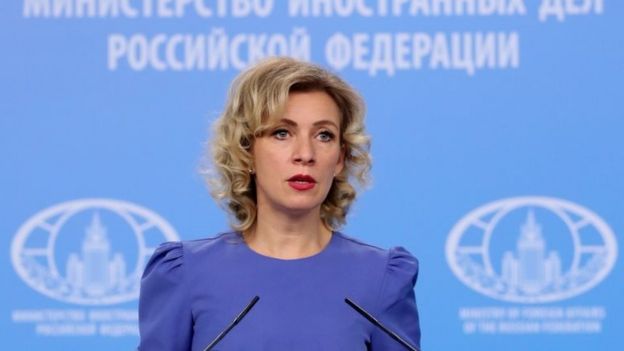(FASTNEWS | COLOMBO) – President Emmanuel Macron of France has described Nato as “brain dead”, stressing what he sees as waning commitment to the transatlantic alliance by its main guarantor, the US.
Interviewed by the Economist, he cited the US failure to consult Nato before pulling forces out of northern Syria.
He also questioned whether Nato was still committed to collective defence.
German Chancellor Angela Merkel, a key ally, said she disagreed with Mr Macron’s “drastic words”.
Russia, which sees Nato as a threat to its security, welcomed the French president’s comments as “truthful words”.
Nato, which celebrates 70 years since its founding at a London summit next month, has responded by saying the alliance remains strong.
What else did the French president say?
“What we are currently experiencing is the brain death of Nato,” Mr Macron told the London-based newspaper.
He warned European members that they could no longer rely on the US to defend the alliance, established at the start of the Cold War to bolster Western European and North American security.
Article Five of Nato’s founding charter stipulates that an attack on one member will produce a collective response from the alliance.
But Mr Macron appeared unsure whether it was still valid when asked. “I don’t know,” he said.
The alliance, Mr Macron is quoted as saying, “only works if the guarantor of last resort functions as such. I’d argue that we should reassess the reality of what Nato is in the light of the commitment of the United States”.
The French leader urged Europe to start thinking of itself as a “geopolitical power” to ensure it remained “in control” of its destiny.
Why the doubts over Nato?
President Donald Trump’s abrupt decision to pull most US forces out of north-eastern Syria in October took European Nato members by surprise.
The move opened the way for Turkey – itself a powerful Nato member – to push into Syria and create what it termed a security zone along its border. Kurdish forces, who had been helping the US fight the Islamic State (IS) group, were expelled from the area.
Mr Macron at the time criticised Nato’s failure to respond to the Turkish offensive.
Mr Trump has frequently accused European Nato members of failing to provide their fair share of military spending and for relying too heavily on the US for their defence.
For his part, Mr Macron has already been at the forefront of moves to boost defence co-operation among European countries. However, the European Union’s other main military power, the UK, emphasises the importance of Nato to European defence.
What reaction has there been?
Chancellor Merkel, speaking in Berlin alongside visiting Nato Secretary-General Jens Stoltenberg, said Mr Macron “used drastic words – that is not my view of co-operation in Nato”.
She acknowledged there were problems, but said she did not think “such sweeping judgements are necessary”.
Russia’s reaction came from foreign ministry spokeswoman Maria Zakharova.
“Well said. Truthful words, and ones that get to the nub of the matter,” she posted on Facebook.
“An accurate description of Nato’s current state,” she wrote.

Nato chief Mr Stoltenberg said the alliance remained strong.
“European allies are stepping up, investing more in defence.
“The US is increasing investments in Europe with more troops, more exercises. The reality is that we do work together. We have strengthened our collective defence. Any attempt to distance us from North America risks not only weakening the alliance, the transatlantic bond, but also weakening Europe.” (BBC)



